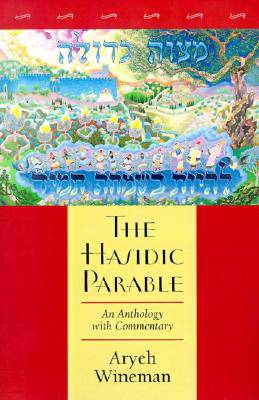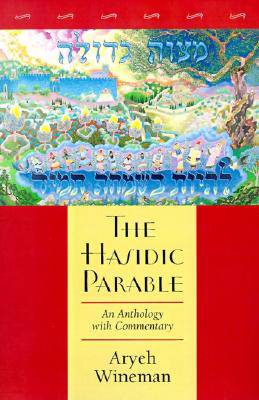
- Afhalen na 1 uur in een winkel met voorraad
- Gratis thuislevering in België vanaf € 30
- Ruim aanbod met 7 miljoen producten
- Afhalen na 1 uur in een winkel met voorraad
- Gratis thuislevering in België vanaf € 30
- Ruim aanbod met 7 miljoen producten
Zoeken
€ 34,95
+ 69 punten
Omschrijving
The teachers of Hasidism gave new life to the literary tradition of parable, a story that teaches a spiritual or moral truth. In The Hasidic Parable, acclaimed author Aryeh Wineman takes readers through the great works of the hasidic storytellers. Telling parables, explains Rabbi Wineman, was a strategy that the hasidic masters used to foster a radical shift in thinking about God, the world, and the values and norms of religious life. Although these parables date back 200 years or more, they deal with moral and religious themes and issues still relevant today. Each is accompanied by notes and commentary by the author that illuminate their ideological significance and their historical roots and background. These parables have been culled from classical hasidic homiletic texts, chosen because of their literary qualities, their explanation of key concepts in the hasidic world-view, and also because of what they say to us about the conflicts and tensions accompanying Hasidism's emergence and growth.
Specificaties
Betrokkenen
- Auteur(s):
- Uitgeverij:
Inhoud
- Aantal bladzijden:
- 220
- Taal:
- Engels
Eigenschappen
- Productcode (EAN):
- 9780827607071
- Verschijningsdatum:
- 1/05/2001
- Uitvoering:
- Paperback
- Formaat:
- Trade paperback (VS)
- Afmetingen:
- 152 mm x 229 mm
- Gewicht:
- 362 g

Alleen bij Standaard Boekhandel
+ 69 punten op je klantenkaart van Standaard Boekhandel
Beoordelingen
We publiceren alleen reviews die voldoen aan de voorwaarden voor reviews. Bekijk onze voorwaarden voor reviews.








